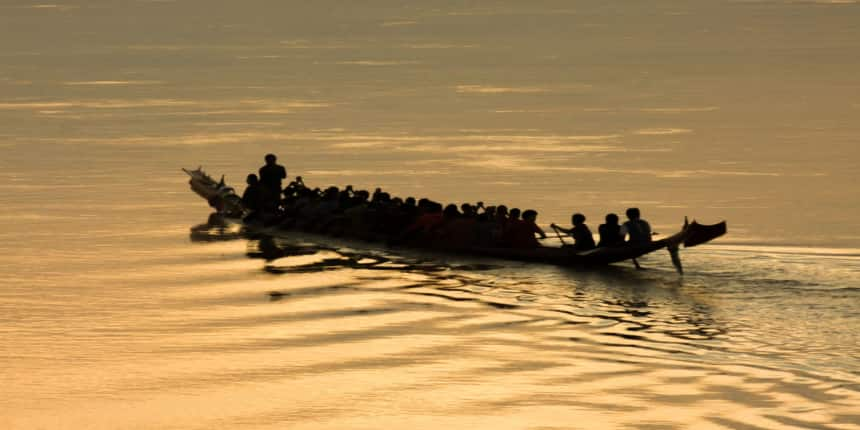MGC Full Form
What is the full form of MGC?
MGC stands for Mekong-Ganga Cooperation. The Mekong-Ganga Cooperation (MGC) is a project of the six member nations of India, Burma, Thailand, Cambodia, Vietnam, and Laos, for cooperation in tourism, culture, and education, as well as in transport and communications. The Ganga and the Mekong, two significant rivers in the area, inspired the name of the organization. The MGC aims to improve friendship, solidarity, and cooperation among the member nations by fostering closer ties and better understanding; to facilitate interstate travel and transit; to facilitate the movement of people and goods throughout the region; to build the infrastructure required in the areas surrounding the Ganga-Mekong basin, and to promote active participation in the fight against poverty.
- What is the full form of MGC?
- Action plan for Mekong Ganga Cooperation 2019–2022
- Festivals of food are organized.
- Nalanda university will open a common archive resource centre (CARC).
- Working mechanism of MGC

Action plan for Mekong Ganga Cooperation 2019–2022
At the 10th MGC Ministerial Meeting, the countries approved the Mekong Ganga Cooperation Plan of Action (PoA) 2019–22. The plan of action outlining the steps to strengthen the collaboration among member nations in the following sectors has been made public by the ministry of external affairs (MEA) and can be seen on the ministry's official website:
Education
Using Mekong students by publicizing the 50 MGC scholarships granted by the Indian Council for Cultural Relations (ICCR).
The Ministry of AYUSH is offering 10 scholarships to individuals interested in studying undergraduate, graduate, or doctoral degrees in Ayurveda, Unani, Siddha, Homeopathy, and Yoga.
Management of Water Resources
India will hold workshops and training programmes to share knowledge and best practices in community farming and water resource management.
Hospitality or Tourism
Festivals of food are organized.
Promoting tour packages for theme-based circuits.
Scholarships for diploma and certificate programmes in hospitality management, tourism and travel management, etc., are available.
Science and Technology
In one of the MGC nations, an innovation forum will be held. It aims to encourage social innovations in areas such as food, energy, environment, health, transportation, communication, industrial know-how transfer, e-commerce, and agriculture.
Improvement of Skills
Training and workshops are used to promote the use of national accounts data and large-scale socioeconomic sample surveys.
Culture
The MGC Asian Traditional Textile Museum is hosting a textile exhibition to highlight the hand-woven textiles from the MGC nations (ATTM).
Maintenance of historical and cultural landmarks Delegations are exchanged, workshops are held, and training programmes are implemented. For training in museology and conservation methods, India offers ten scholarships (two to each member nation).
Nalanda university will open a common archive resource centre (CARC).
Transportation and Communication
The viability of expanding the Indo-Myanmar-Thailand Trilateral Highway to Cambodia, Lao PDR, and Viet Nam was assessed.
The achievement of the Motor Vehicle Agreement between India, Myanmar, and Thailand.
Public Health and Healing Practices
Promotion of collaboration in training sessions and seminars on the eradication of infectious and non-communicable diseases with high occurrences.
Working mechanism of MGC
The Annual Ministerial Meetings, Senior Officials Meetings (SOM), and 5 working groups make up the Mekong-Ganga Cooperation's operational structure. The cooperative areas of MGC are managed by these 5 working groups. Here are some of them:
- Working groups in the following areas: education, tourism, and culture
- Working committee for Action Plans
- Group of communication workers